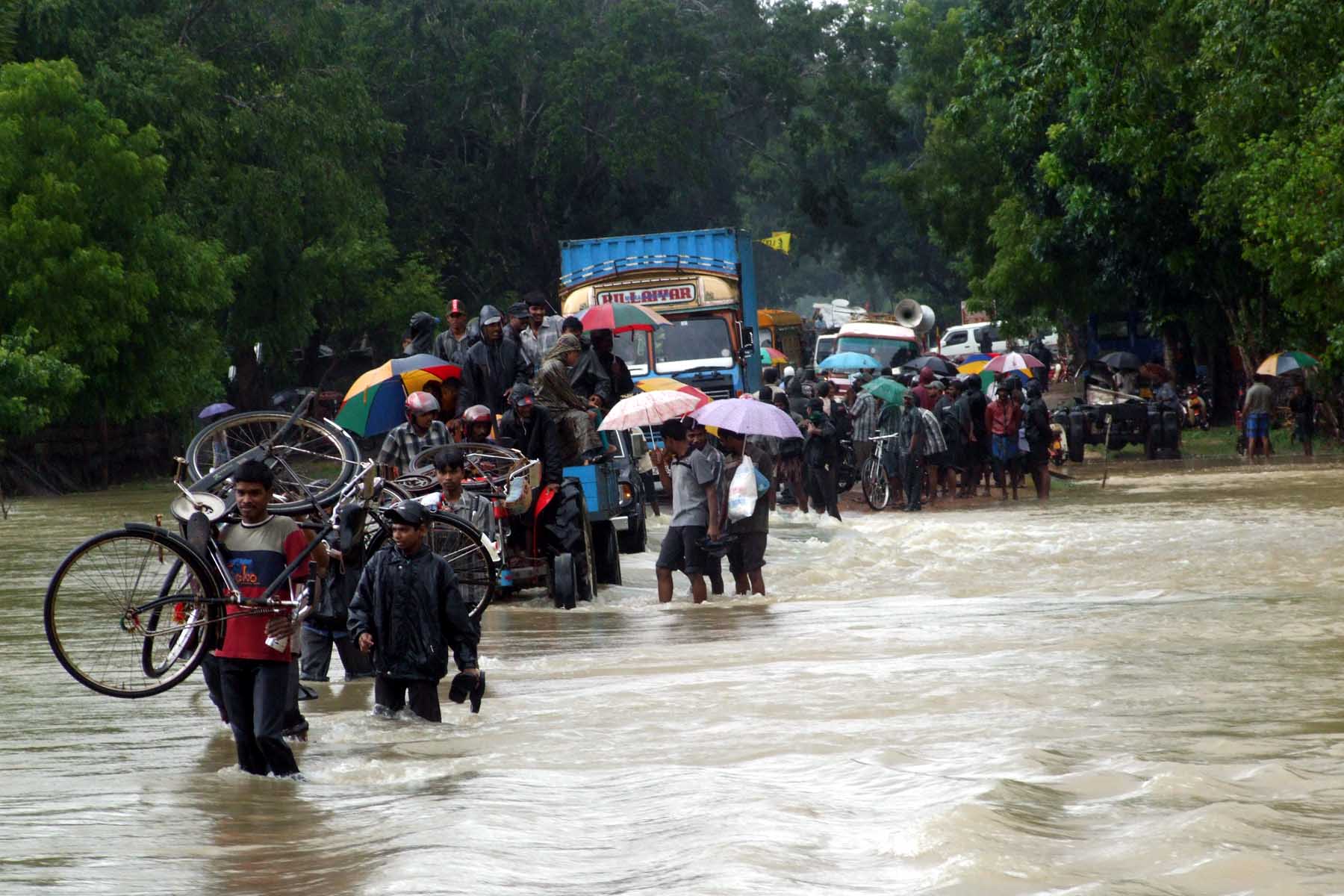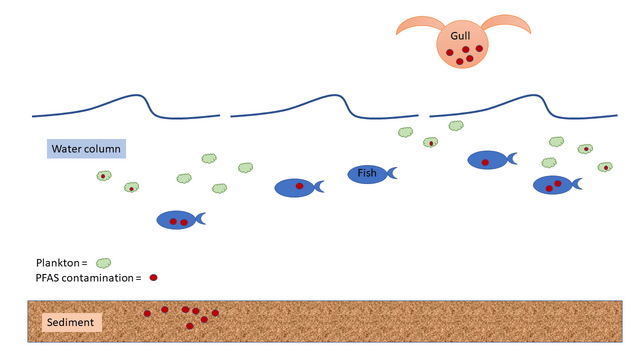If it feels like aeons ago that Greta Thunberg chilled onlookers to the spine with her icily fraught, incisive opener at the 2019 UN Climate Action Summit, “we’ll be watching you,” an eternity must surely have passed before those watchful eyes. Over three years have elapsed since, and yet, despite ever-mounting pressure, policy-makers have continued to overlook the necessity for urgent and radical change.
It’s a miracle that it has taken so long for high-profile, bold civil disobedience to take shape, but the growing desperation of environmental activists seems finally ready to bloom into something new. Thunberg’s February 17 appearance on ABC’s “The View” seems only to confirm this. “I want to in the future be able to look back and say that I did everything I could in this time when we were experiencing an accelerating climate crisis,” she said.
Greta then turned to precedent, evoking women’s suffrage and the civil rights movement to remind viewers that “if we look through history, if people who were advocating for, for example, social justice, if they had only used the legal methods then we wouldn’t be where we are today.”
For most of her career, Thunberg’s most notable contributions to environmental activism have been her Friday school strikes, as well as a host of influential public speaking engagements. Indeed, until recently, her work has been confined solely to “legal methods,” but taking this interview and Thunberg’s recent arrest in Germany into account, a potential shift in mentality is perceptible.
With urgency mounting, and passion morphing into anguish, a turn to civil disobedience or even violence seems possible, if not inevitable. Nevertheless, though it is hard not to see Thunberg as a bellwether of sorts for the environmentalist cause, one can’t divine the changing winds of a global movement based solely on the attitude of a leading member.
The work of Just Stop Oil does seem to point in the same direction, though, with the group’s controversial souping of Van Gogh’s “Sunflowers” garnering a huge amount of attention. Indeed, in Waging Nonviolence, James Ozden points out that “radical actions across the climate movement are gaining popularity.” Referring not only to Just Stop Oil, but also Canada’s Save Old Growth and Germany’s Letzte Generation, Ozden perceives “a wave of activists employing increasingly disruptive tactics to demand climate action.”
Dr Morgana Lizzio-Wilson, a scholar working at Flinders University, locates the origin of this turn to civil disobedience in “disenfranchisement.” “When people feel that their activism to champion an issue fails, they’re much more likely to use more radical tactics,” she explained.

Unsurprisingly, however, this disenfranchisement can be detected not just in the actions of the mainstream environmentalist movement, but also in their words, as expressions of desperation and calls for action have become more frequent and less reserved.
Take Andreas Malm, for instance, who railed against pacifism and advocated for violent destruction of fossil fuel infrastructure in his 2021 book, “How to Blow Up a Pipeline,” described by David Hughes of Time Out as “Dynamite,” and which, according to Pilita Clark of the Financial Times, “captured the rising fury of climate activists.”
Related Articles: Airport Activism: Is a New Style of Protest Taking Off? | Out With the Old, in With the New: How Extinction Rebellion Is Changing Pace | Should Climate Protests Give Vandalism a Go?
These kinds of radical voices have been exchanging mouthpieces for megaphones and the rising volume of their cries seem telling of a broader, accelerating trend. In Malm’s own words:
“We are deep into the catastrophe; the hour is late, but the escalation has only just begun. We don’t know what exactly will work. The one thing we can be certain of is this: we are in a death spiral, we have to break out of it, and we must try something more. The days of gentle protest may be long over.”
Climate activism at a turning point: What next?
“Something more” is the sentiment reflected in the present shape of the climate activism movement. It is unclear, however, if civil disobedience or violent resistance is the escalation needed. A 2019 Journal of Peace research paper casts doubt on the idea, in remarking that “research on social movements increasingly converges towards the finding that nonviolent protest movements tend to be, in the long run, more successful in reaching their goals and promoting policy change than violent movements.”
Certainly, shows of force inevitably alienate members less strongly or actively tied to the cause. This by no means precludes the possibility, however, that activists like Thunberg and Malm are not at all afraid of losing a few bandwagon-jumpers. They’d likely respond that when it comes to the climate crisis there is no “long run” to patiently abide by. The fact is that “unpopular but quicker” is likely a sacrifice climate activists must make.
There are other external forces at work in the alchemy of every popular movement, however. As Kurtz and Smithey put it in their 2018 study, “in an asymmetrical conflict, when actors representing the status quo use force […] to repress their opponents—especially those engaged in nonviolent movements—the use of coercion often backfires.”
Given the uptick in government repression of climate activism, it shouldn’t come as too much of a surprise that environmentalist ire has been inflamed. In 2021, for example, The Guardian reported that over 2,000 Extinction Rebellion protestors were processed by the courts, “in what experts say is one of the biggest crackdowns on protest in British legal history,” while 18 peaceful protestors were imprisoned for their actions.
It appears that as the stale old climate change denial techniques have begun to chafe against an increasingly knowledgeable public, and repression has thus been adopted as the response of choice by those intending to suppress climate activism.
Returning to Greta’s appearance on “The View”, it’s impossible not to resonate with her plainly stated concern that things are “going way, way too slow.”
Naturally, it’s hard to discern what exactly the response will be to continuing governmental inaction, and harder still to know what it ought to be. Still, though not strong enough to blow things wide open just yet, the stormy furor of climate activism seems inextricably bound for “something more,” something beyond “legal methods.”
Activists appear to be scrabbling for a means of escalation; whether it be blocking a motorway, hunger striking or even blowing up an oil pipeline, there is a thirst for something new; something with a little more kick.
A shift of attitude must therefore come from the government if they want to avoid a shift in attitude on the side of the activists. The climate crisis is, as Greta Thunberg so often reminds us, an existential one, and as she recently informed the hosts of “The View,” “that’s not something that we can just ignore and postpone.”
Editor’s Note: The opinions expressed here by the authors are their own, not those of Impakter.com — In the Featured Photo: Where It All Began: Greta Thunberg at her August 2018 school climate strike. Featured Photo Credit: Wikimedia Commons













